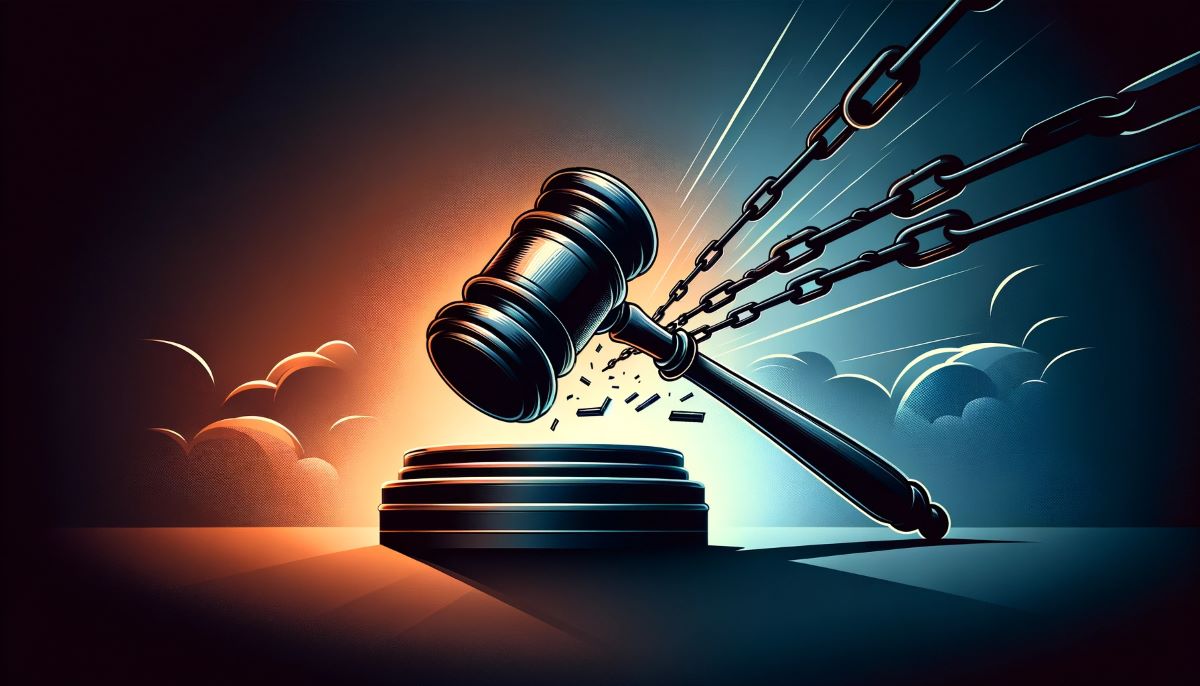Writing an Impressive Expungement Letter (with Sample)
Use this sample expungement letter as a template for your formal expungement letter.
Last updated on March 2nd, 2024
As someone who has penned numerous expungement letters over the years, I've gained unique insights into the nuances of this critical process. An expungement letter is a pivotal tool for individuals aiming to clear their criminal records of arrests or charges that adversely impact various aspects of their lives, such as loan applications, rental agreements, or job opportunities.
Key Takeaways
- Understanding Expungement: Learn what an expungement letter is and its significance in sealing or removing items from your criminal record.
- Eligibility Criteria: Know the requirements to qualify for expungement, including the type of offenses and the timeline since the incident.
- Writing the Letter: Step-by-step guide to crafting a compelling expungement letter that showcases your reformed character.
- Submission Process: Understand where and how to send your expungement letter for effective results.
- Sample Template: Get a head start with a structured template to create your expungement letter.
Introduction to Expungement Letters
An expungement letter is a formal request to remove or seal undesirable items from one's criminal record. This could be crucial for individuals whose past arrests, even without charges, are hindering significant life opportunities.
Requirements for Expungement
To be eligible for expungement, you must not have been convicted of a felony or a gross misdemeanor in the last ten years. The charges should have been dismissed without establishing probable cause, among other stipulations.
Step-by-Step Guide to Writing an Expungement Letter
- Understand the Purpose: Recognize that the letter aims to demonstrate your reformed character and request the removal of specific records.
- Gather Information: Before writing, collect all necessary details, such as case numbers and relevant dates.
- Formal Tone: Ensure the letter is written in a professional business style, highlighting your responsible societal role.
- Content Structure: Start with your personal details, followed by a clear statement of your request. Subsequently, articulate the positive changes in your life since the arrest.
- Supporting Documents: Attach letters of support or evidence of community engagement to bolster your case.
- Submission: Address the letter to the relevant authorities and send it via certified mail, retaining copies for your records.
Tips from Personal Experience
- Be Honest: Transparency about your past and the steps you've taken towards improvement is crucial.
- Avoid Negative Tone: Do not criticize the police or the legal system. The focus should be on your growth and rehabilitation.
- Provide Evidence: Concrete examples of your positive contributions to society can significantly strengthen your request.
Sample Expungement Letter Template
Here's a basic structure to kickstart your letter:
[Your Name]
[Your Address]
[City, State, Zip Code]
[Email Address]
[Phone Number]
[Date]
[Recipient’s Name]
[Recipient’s Title]
[Recipient’s Address]
[City, State, Zip Code]
Subject: Request for Expungement of Criminal Record [Case Number]
Dear [Recipient’s Name],
[Opening paragraph introducing yourself and the purpose of the letter.]
[Body paragraphs detailing the circumstances of your arrest, the steps you've taken to reform, and your contributions to society.]
[Closing paragraph reiterating your request and expressing gratitude for their consideration.]
Sincerely,
[Your Name]
Conclusion
Writing an effective expungement letter is a step toward reclaiming your future. By following these guidelines and employing the template provided, you can craft a letter that not only presents your case persuasively but also underscores your commitment to a positive and law-abiding life.
Frequently Asked Questions (FAQs)
Q. What is an expungement letter?
A. An expungement letter is a legal document that requests the court to remove or seal certain criminal records from public access. The letter usually includes a detailed explanation of the petitioner's circumstances, the reason for seeking an expungement, and the supporting evidence or documentation.
Q. Why would someone need an expungement letter?
A. Someone may need an expungement letter to clear their criminal record, which can affect their ability to secure employment, housing, or other opportunities. Having a criminal record can also lead to social stigmatization, discrimination, and barriers to personal growth and development.
Q. How do you write an expungement letter?
A. When writing an expungement letter, you should include your full name, date of birth, the case number, and the date of your conviction. Explain why you are seeking an expungement, such as for employment or educational purposes. Provide evidence of your rehabilitation, such as community service, counseling, or drug treatment. You may also want to include any letters of recommendation, certificates of completion, or other relevant documentation.
Q. Who should receive the expungement letter?
A. The expungement letter should be addressed to the court where the conviction occurred, and copies should be sent to the prosecutor, the probation officer, and any other relevant parties involved in the case.
Q. What happens after you submit an expungement letter?
A. After you submit an expungement letter, the court will review your case and determine whether you are eligible for expungement. If the court approves your request, the criminal record will be removed or sealed from public access. However, the exact process and requirements for expungement vary depending on the state and jurisdiction.
Q. How long does it take to get an expungement?
A. The length of time it takes to get an expungement can vary depending on the court's caseload, the complexity of your case, and the state's laws and procedures. Some expungements can be processed in a few weeks, while others may take several months or longer.
Q. Can I apply for an expungement on my own?
A. Yes, you can apply for an expungement on your own, but it's recommended to consult with an attorney who specializes in criminal law and expungements to ensure that you meet the eligibility requirements and submit a strong and compelling case. An attorney can also guide you through the legal process and help you prepare the necessary documents and evidence.
A. An expungement letter is a legal document that requests the court to remove or seal certain criminal records from public access. The letter usually includes a detailed explanation of the petitioner's circumstances, the reason for seeking an expungement, and the supporting evidence or documentation.
Q. Why would someone need an expungement letter?
A. Someone may need an expungement letter to clear their criminal record, which can affect their ability to secure employment, housing, or other opportunities. Having a criminal record can also lead to social stigmatization, discrimination, and barriers to personal growth and development.
Q. How do you write an expungement letter?
A. When writing an expungement letter, you should include your full name, date of birth, the case number, and the date of your conviction. Explain why you are seeking an expungement, such as for employment or educational purposes. Provide evidence of your rehabilitation, such as community service, counseling, or drug treatment. You may also want to include any letters of recommendation, certificates of completion, or other relevant documentation.
Q. Who should receive the expungement letter?
A. The expungement letter should be addressed to the court where the conviction occurred, and copies should be sent to the prosecutor, the probation officer, and any other relevant parties involved in the case.
Q. What happens after you submit an expungement letter?
A. After you submit an expungement letter, the court will review your case and determine whether you are eligible for expungement. If the court approves your request, the criminal record will be removed or sealed from public access. However, the exact process and requirements for expungement vary depending on the state and jurisdiction.
Q. How long does it take to get an expungement?
A. The length of time it takes to get an expungement can vary depending on the court's caseload, the complexity of your case, and the state's laws and procedures. Some expungements can be processed in a few weeks, while others may take several months or longer.
Q. Can I apply for an expungement on my own?
A. Yes, you can apply for an expungement on your own, but it's recommended to consult with an attorney who specializes in criminal law and expungements to ensure that you meet the eligibility requirements and submit a strong and compelling case. An attorney can also guide you through the legal process and help you prepare the necessary documents and evidence.

